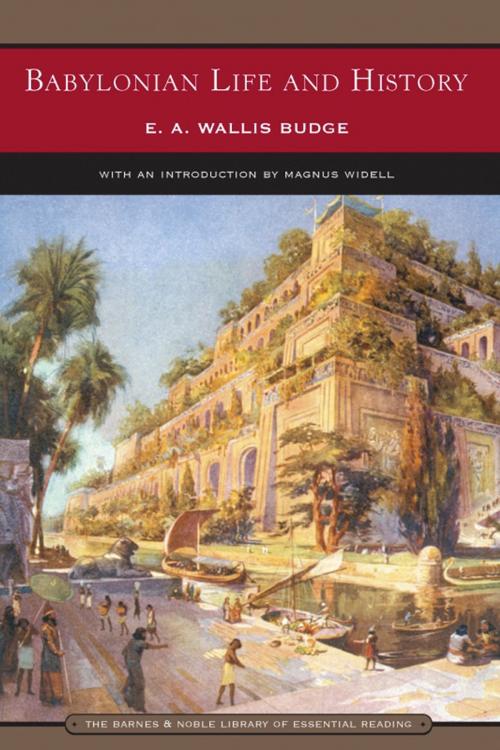| Author: | E. A. Wallis Budge | ISBN: | 9781411429079 |
| Publisher: | Barnes & Noble | Publication: | September 1, 2009 |
| Imprint: | Barnes & Noble | Language: | English |
| Author: | E. A. Wallis Budge |
| ISBN: | 9781411429079 |
| Publisher: | Barnes & Noble |
| Publication: | September 1, 2009 |
| Imprint: | Barnes & Noble |
| Language: | English |
In E. A. Wallis Budge's classic work, Babylonian Life and History, the reader will find everything from Babylonian vampires to the practice of "baby farming" in Mesopotamia. Budge brings to his readers the most famous Mesopotamian myths and legends, such as mankind's first recorded story of the Creation, the Babylonian story of the Great Flood, and the adventures of the world's first epic hero, Gilgamesh. The work provides an introduction to the religious, political, and intellectual foundations of ancient Babylonia.
The book continues as a chronological survey of many of the most important and formative historical events of the ancient Near East, from the beginning of written history in the fourth millennium BC until Mesopotamia became part of the Persian Empire in 539 BC. This survey is rounded off by a detailed description of the city of Babylon and its many well-known monuments. Additionally, we learn about the extensive German excavations of the site directed by Robert Koldewey from 1899 to 1912. Almost every chapter of Babylonian Life and History is full of longer excerpts of ancient texts, in English translations, and provides an account of the history, religion, archaeology, and literature of ancient Babylonia.
In E. A. Wallis Budge's classic work, Babylonian Life and History, the reader will find everything from Babylonian vampires to the practice of "baby farming" in Mesopotamia. Budge brings to his readers the most famous Mesopotamian myths and legends, such as mankind's first recorded story of the Creation, the Babylonian story of the Great Flood, and the adventures of the world's first epic hero, Gilgamesh. The work provides an introduction to the religious, political, and intellectual foundations of ancient Babylonia.
The book continues as a chronological survey of many of the most important and formative historical events of the ancient Near East, from the beginning of written history in the fourth millennium BC until Mesopotamia became part of the Persian Empire in 539 BC. This survey is rounded off by a detailed description of the city of Babylon and its many well-known monuments. Additionally, we learn about the extensive German excavations of the site directed by Robert Koldewey from 1899 to 1912. Almost every chapter of Babylonian Life and History is full of longer excerpts of ancient texts, in English translations, and provides an account of the history, religion, archaeology, and literature of ancient Babylonia.















